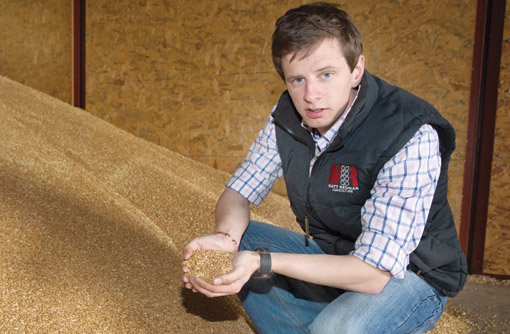FARMER FOCUS: A critical year for metaldehyde

Harvest has been progressing well. At the time of writing there is just a small amount of wheat and spring barley, along with all of the spring oilseed rape, remaining – and the drier hasn’t been used at all.
So far, nothing has been disappointing, or amazing, but given our into-store system of “trailer load guesstimations,” we only have a rough idea of how it’s gone until it has all been sold and collected.
Oilseed rape drilling has been completed in good conditions, followed by decent rain – we weren’t brave enough to drop below 80seeds/sq m, so hopefully we shouldn’t be short of plants to feed the pigeons during the winter. Wheat varieties are still undecided, but cultivations have got off to a good start – at one point a neighbour thought the plough was going to overtake the combine.
It’s ludicrous to think that this time next year we could be spraying broad-spectrum insecticides on crops to control pests we usually don’t have to worry about too much. I’m baffled at how the ban of low-rate, targeted actives (neonicotinoid seed treatments) can be measured, when the only alternative is to blanket spray with more harmful alternatives.
On the subject of banned pesticides, I think this year could be a deciding year for metaldehyde. I’ve started monitoring for slugs across the farm and you don’t have to look far to find them on ex-oilseed rape ground. Luckily, numbers are lower in current rape fields, but they are definitely there. Very careful use of metaldehyde pellets is going to be essential to ensure we can keep hold of this valuable active.
Away from the farm I’ve taken another jump and pushed my business forward by investing in a tractor, so all that playing with a calculator working out operation and running costs will now be put to the test. While it is still the early stages of the business at the moment, anyone considering going down the route of share farming, and looking for an enthusiastic, hard-working young farmer to work with, please get in touch. It would be great to keep the momentum going so that in future I can take on a placement student, and start to give something back.
Matt Redman operates an agricultural contracting business and helps out on the family farm at Lower Gravenhurst, Bedfordshire. The 210ha farm grows mainly wheat, oilseed rape and beans

